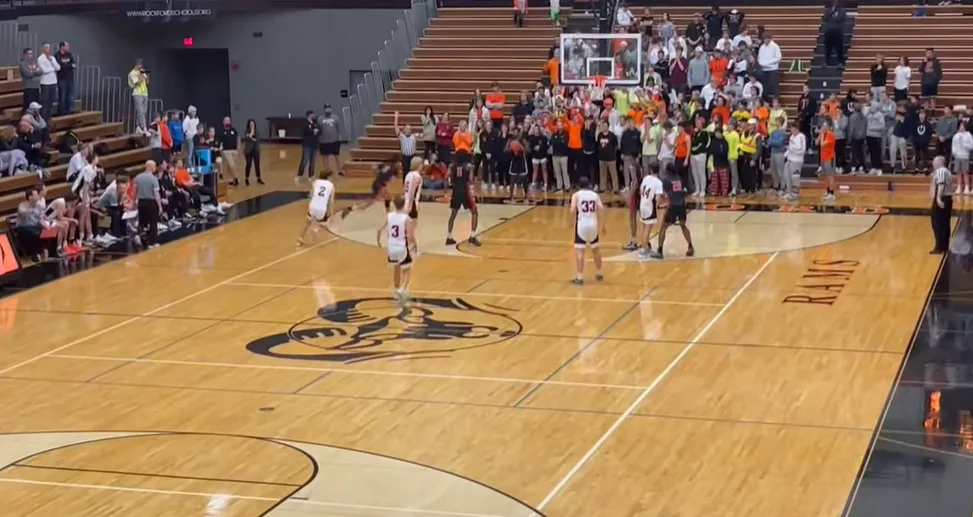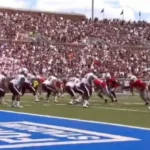A Season on the Move
When the Brooklyn Nets tip off the 2025–26 NBA season, they’ll do so with not just a challenging schedule on the court, but also one of the most grueling travel itineraries in league history. According to Sports Illustrated, the Nets will log over 55,000 miles this year roughly the equivalent of circling the Earth twice (Sports Illustrated, 2025).
- A Season on the Move
- Breaking Down the Miles
- How This Compares to Other Teams
- The Human Toll of Constant Travel
- Historical Background: Travel in the NBA
- Why the Nets?
- Stats That Show the Challenge
- The Bigger Picture: NBA’s Global Strategy
- Human Commentary: The Double-Edged Sword of Global Expansion
- Could This Backfire?
- Conclusion: A Journey Worth Watching
This staggering number isn’t just a trivia tidbit; it’s a reflection of how the NBA is pushing boundaries with international games, broadcast partnerships, and a global fanbase that demands teams like Brooklyn show up everywhere from New York to Europe to Asia.
Breaking Down the Miles
To understand how the Nets ended up in this position, it’s worth looking at the NBA’s scheduling strategy. The league has been steadily increasing its international presence through preseason and regular-season games abroad.
- Brooklyn will play exhibition games in Europe before the season officially starts.
- They’ll also participate in a two-game series in Tokyo, one of the league’s biggest international markets.
- Add in coast-to-coast U.S. travel Brooklyn has frequent matchups on the West Coast against teams like the Warriors and Lakers and suddenly, the mileage skyrockets.
The final tally: over 55,000 miles of air travel for the season (Basketball Reference Travel Data, 2025).
How This Compares to Other Teams
While every NBA team racks up frequent flyer miles, not all schedules are created equal. For comparison:
- The average NBA team travels about 40,000–45,000 miles per season (FiveThirtyEight, 2017).
- The Portland Trail Blazers historically lead in domestic travel due to their isolated location in the Pacific Northwest, often topping 50,000 miles.
- The Nets’ projected 55,000+ miles is not only above average, it could become the highest in modern NBA history.
In other words, Brooklyn won’t just be playing basketball this season; they’ll be living out of suitcases and airplanes.
The Human Toll of Constant Travel
To fans, fans can see the figure of 55,000 miles and shrug, it’s all a part of professional sports, correct? Travel matters a great deal more to the player, however.
Sport scientists have found that jet lag and travel fatigue can decrease athletic performance by 5-15 percent as a result of impaired circadian rhythms and sleep deprivation (Journal of Sports Sciences, 2019). NBA players, who are already subjected to 82 regular-season games, practices, and media demands, often experience the strain of it much more than the fan would imagine.
NBA player JJ Redick has previously referred to NBA travel as a grind that your body never gets accustomed to (ESPN, 2020). Traversing zone after zone in tight windows precludes energetic beginnings, shooting continuity, and creates an injury-threatening component.
This non-stop travel has the potential to define the entire season of the Nets, whose roster is packed with young stars like Cam Thomas and veteran stars like Kevin Durant.
Historical Background: Travel in the NBA
Travel challenges aren’t new in basketball. In fact, they’ve been part of the league’s DNA since its founding in 1946.
- In the early decades, players traveled mostly by train and bus, especially in the Northeast corridor.
- By the 1980s, charter flights became more common, but scheduling quirks (like playing three games in three nights) still left players exhausted.
- The NBA’s first regular-season games abroad took place in 1990, when the Suns and Jazz played in Tokyo. Since then, the league has staged games in London, Paris, Mexico City, and Shanghai.
Each expansion added mileage to team schedules, but also revenue and visibility. The Nets’ 2025–26 journey is simply the latest, most extreme example of this global push.
Why the Nets?
It has to be wondered as to why the NBA burdened Brooklyn with such a gruesome schedule.
This is the answer to marketability. The Nets have their home in the biggest media market in the U.S. (New York), and a global fan base was quickly built, especially during the years that Kevin Durant, Kyrie Irving, and James Harden wore the black-and-white uniforms. The Nets have been one of the most recognizable brands in the league despite the failure of the so-called superteam in the aftermath of the era.
By exporting the Nets, the NBA will continue to have filled stadiums, merchandising, and television ratings all over the world. During a recent interview, NBA commissioner Adam Silver acknowledged the importance of the globalization of the basketball league as part of future growth (NBA.com, 2024).
Stats That Show the Challenge
Here’s how Brooklyn’s schedule stacks up:
- 55,000+ miles traveled (SI, 2025).
- Equivalent to circling the globe 2.2 times (Earth’s circumference: ~24,900 miles).
- 82 regular-season games in just 177 days (NBA Schedule).
- Nets will cross 14 different time zones throughout the season (TravelMath, 2025).
- Teams that travel the most in a season win 6% fewer road games on average, according to a FiveThirtyEight analysis.
Numbers like these underscore the challenge not just physically, but competitively.
The Bigger Picture: NBA’s Global Strategy
Behind the Nets’ exhausting schedule lies the NBA’s bigger ambition: becoming the world’s premier global sports league.
The NBA generates over $13 billion in annual revenue (Statista, 2024), and much of its future growth depends on markets outside the U.S. China alone accounts for hundreds of millions of viewers, while Europe and Latin America continue to expand as basketball hotbeds.
Sending teams like Brooklyn abroad is less about competitive balance and more about brand expansion. Every extra mile traveled means another international arena packed, another set of fans converted, and another sponsor secured.
Human Commentary: The Double-Edged Sword of Global Expansion
I am a basketball fan. On the one hand, it is exciting to realize that NBA is turning toward its international fans. There is something charged about the fact that a game by the Nets, a team playing their games in Tokyo to be as important as the one played in Madison Square Garden. Basketball is, at that, an international language.
However, on the downside, we cannot overlook the price. Players do not represent advertising properties. The wear and tear of 55,000 miles not only affects wins and losses but poses threats to the mental and physical health and quality of the product.
I reflect on previous days when a legend like Bill Russell said that travel and weariness were the unseen adversaries every team was facing. In the 1960s, players were exhausted by travel. In 2025, when twice the world is available to you, what happens?
Could This Backfire?
If the Nets stumble this season, some will inevitably point to travel as the culprit. It’s happened before. The Golden State Warriors’ 2017 China trip was cited as a factor in their sluggish start to the year (The Athletic, 2017).
Fans may also start questioning fairness. Should one team really face such a lopsided travel burden? If Brooklyn finishes with a worse record than a rival team that traveled 10,000 fewer miles, does that distort playoff races?
These are not just hypotheticals. They’re questions the NBA will need to address as it balances global ambition with competitive integrity.
Conclusion: A Journey Worth Watching
The Brooklyn Nets record-breaking travel schedule is more than a logistical annotation- it is the foreshadowing of the NBA. A league that began as a small North American circuit has grown into a global spectacle that require its teams to take the brand well out of the North American continent.
This season the Nets will be as much about enduring as effectuating. Are they able to jet around, fight exhaustion and time zone distortions so that they can be competitive at the highest levels? Or will their miles in the air Conference Leaving them in midair?
This we know: fans will be simultaneously enjoying the game in Brooklyn, Berlin and Tokyo as the Nets become the ultimate traveling team in the NBA in 202526.





